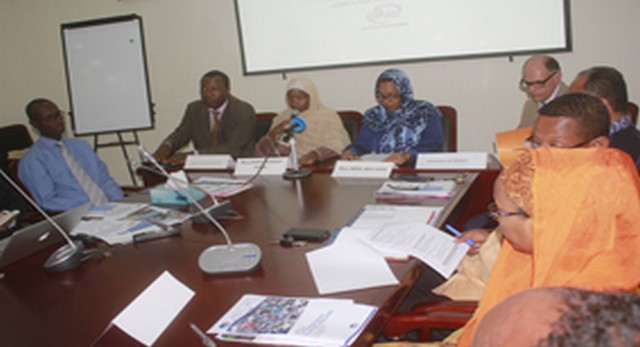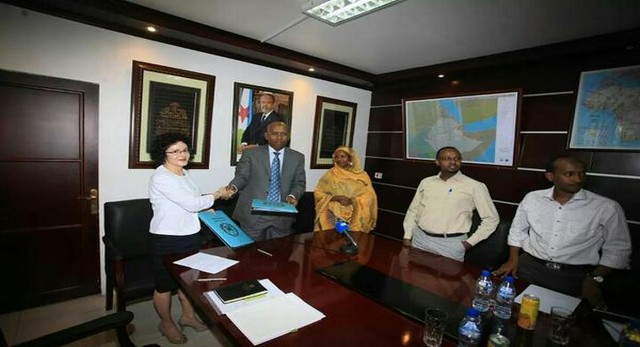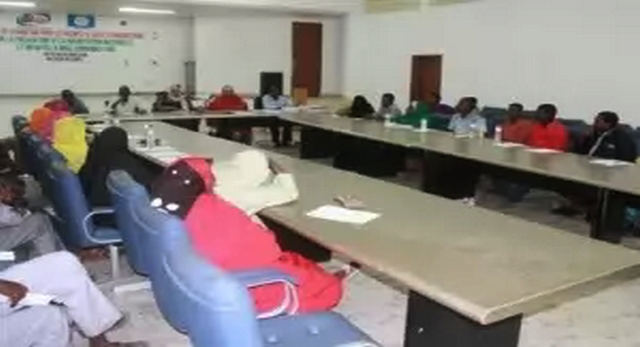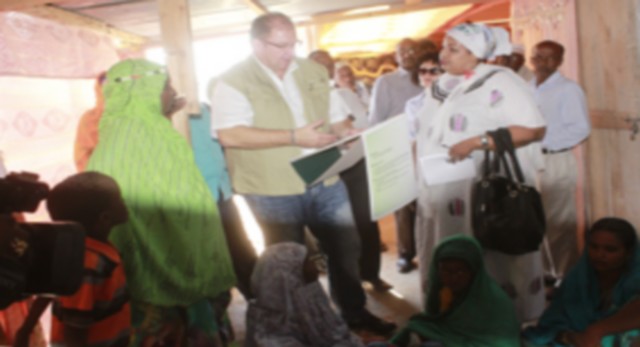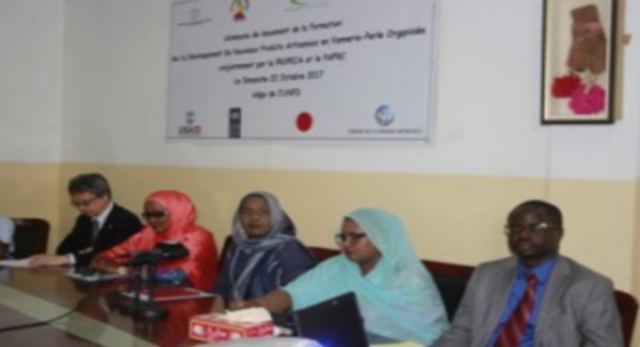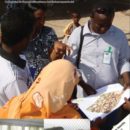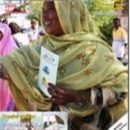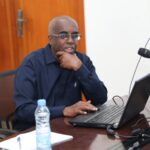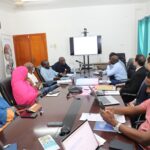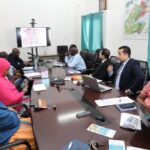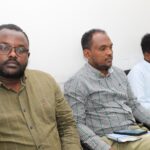Secretary of State for National Solidarity, Zahra Youssouf Kayad , sponsored Sheraton yesterday the closing ceremony of the training for regional councilors , elected officials and municipal technicians and decentralized services sector ministries. The event was the culmination of five days work on strengthening the technical and organizational capacity of local communities to each other and have made in the halls of the hotel.
The Djibouti Social Development Agency (ADDS ) held from 18 to 22 January 2014 at the Sheraton training on strengthening the technical and organizational capacity of local communities.
Political governing body, in this case the Secretary of State for National Solidarity, Zahra Youssouf Kayad , sponsored yesterday’s closing ceremony of the training session five days of targeted regional councilors , elected officials and agents communal and technicians decentralized sectoral ministries services.
The event saw the participation of several public figures. Include the Minister of Higher Education and Research, Nabil Mohamed Ahmed, Minister of Health, Osman Kassim Issack , the mayor of the capital, Hussein Abdillahi Kayad , Chairman of the Board of Directors of the ADDS , Abdi Ilmi Achkir and the Director General of the ADDS Mahdi Mohamed Djama .
Yesterday’s ceremony at the Sheraton was the culmination of five days work on the project owner , the mastery of delegate work and mastery of work that students have done under the guidance of the consultant Jean Michel Lebreton, from the ranks of the international institute for training and human resources consulting FORHOM or its acronym .
It facilitated the various modules of this training session. Modules in which the audience was able to identify the roles and responsibilities of the ADDS in implementing national development projects .
Participants were also made aware of the contributions of the Djibouti agency and to improve their living conditions of local populations.
Better, they now have a better overview about the division of tasks between the institutional actors in the fight against poverty.
Clearly , communities or individual departments retain ownership of the project in terms of project management.
Thus , they ensure its feasibility and mobilization of funding. If the client does not have the necessary experience , he can call the master delegated work, that it will retain a prime contractor who is required to perform the work entity in respect deadlines , fixed cost and quality requirements in accordance with the terms of the contract.
So in light of these new concepts that participants were able to integrate the various stages of project implementation , which include the identification of problems , their formulations , their performances and their monitoring and evaluation.
Recall emphasizes enough timeliness of this training was intended to strengthen the capacity of stakeholders in the management of local development projects .
As so aptly pointed Chairman of the Board of ADDS , a good objective assessment is essential if we are to make the necessary corrections to our programs and lessons for the future.
Abundant in this sense, the Secretary of State for National Solidarity said the initiatives will not be ADDS duplication of sectoral programs of the State or local authorities but will be complementary to existing intervention modes.
What Ms. Zahra Youssouf Kayad sensitized listeners who were in favor of the renewal of this type of training .
Their wishes seem to come true. Since ADDS and NSIS provide concert next programming other offers training on the management of projects and communities. The objective of this bias is to better organize them.


